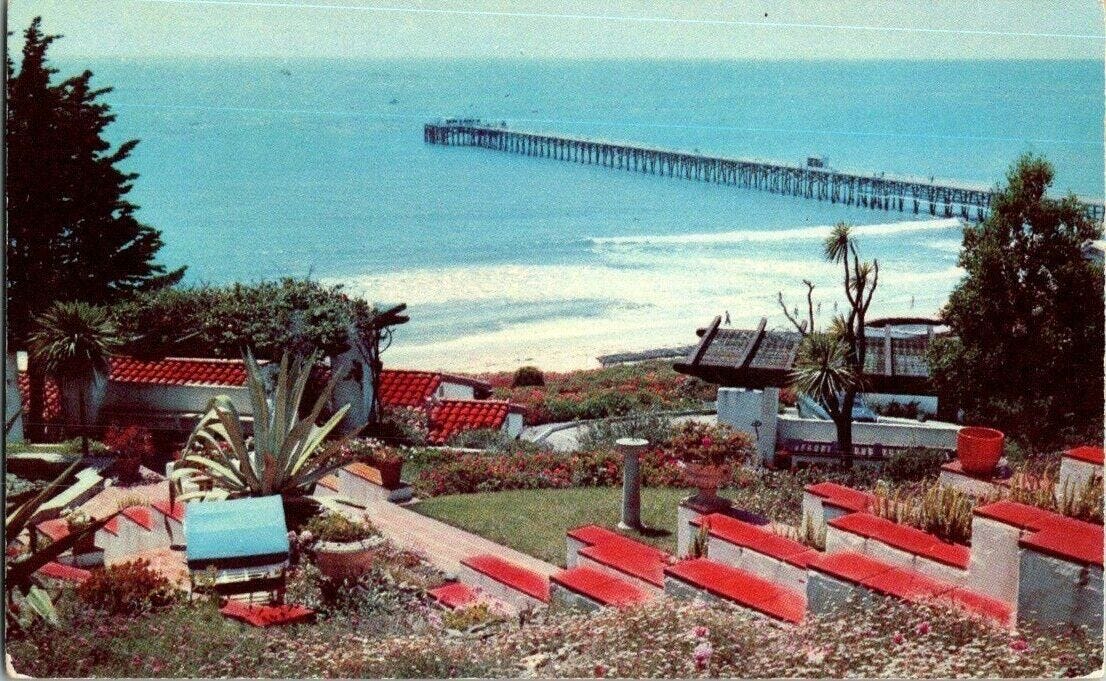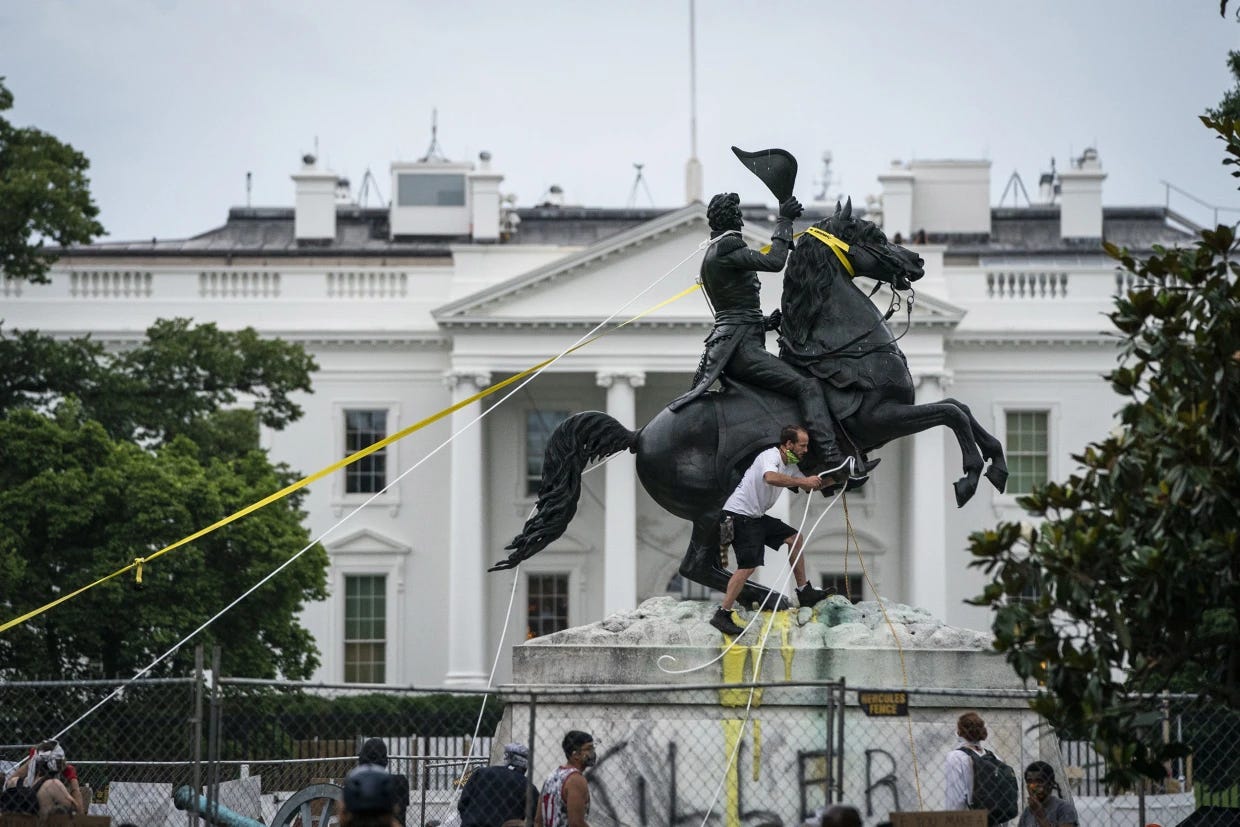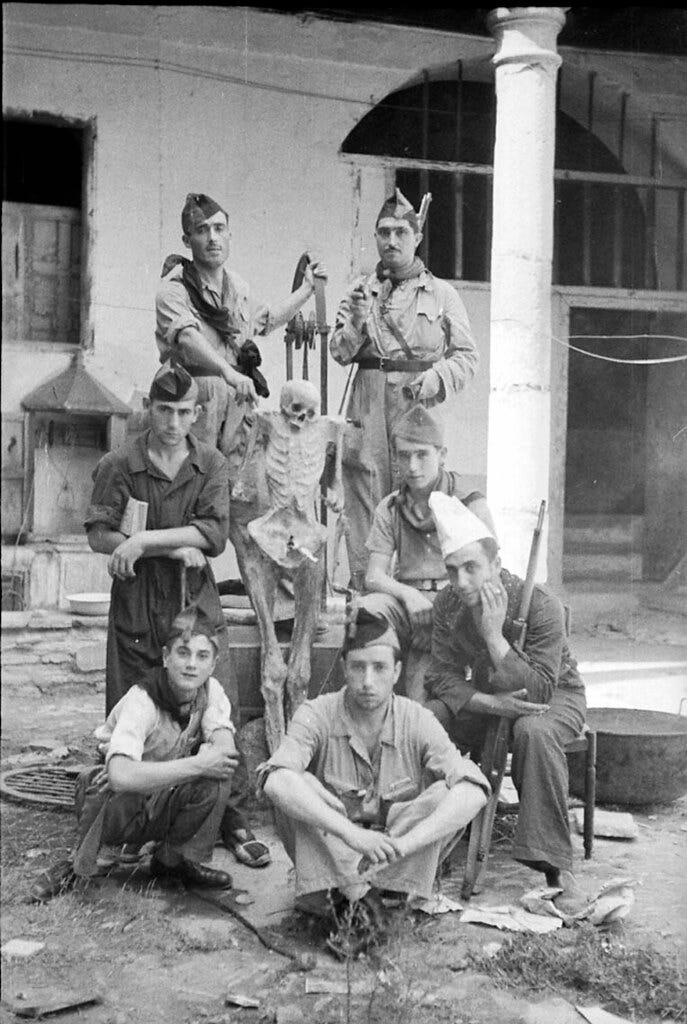Revolutionaries vs. Counter-revolutionaries
"Become who you are"
There’s been endless discussion about what the American Right should be doing right now. There’s also a great deal of debate about what the American Right even is.
A lot of rightwingers in America today like to imagine themselves as revolutionaries. It’s very important to understand that revolutionaries aren’t just looking to overthrow a government, they’re looking to overthrow a nation—a people and their way of life. The government might protect that nation, or it might be openly hostile to it.
When the first American revolutionaries overthrew their colonial government, they created an entire new way of life separate from the one that the British had envisioned for them. That system, though it’s taken a lot of hits lately, still continues to this day. It’s a lot more than whatever laws are on the books or whoever’s in political office now. It’s people, traditions, instincts, and values. This system made lives better for centuries. When Americans think about good times in the past, they are thinking about this system.
Over the last century, and especially over the last few years, there has been a growing number of people in high places (and low ones, too) who desperately want to overturn the American system. They want to overthrow the government (even though they are in control of it), they want to overthrow the country’s history, and ultimately they want to overthrow the country’s people by demographically displacing them and eliminating their identity.
Please understand, whatever your specific political views, if you are even vaguely rightwing in the United States, you are a counter-revolutionary. You want to stop the process of civilizational unwinding that is going on right now.
Revolutionaries and counter-revolutionaries are distinct groups in the age of mass politics. The American revolutionaries represented all sectors of society, but included some of the most brilliant and respected members of it. The same was true of the leaders of the short-lived Confederate States. This is not true of the main drivers of revolutions in the 20th century: communists. These were not nice people. They came from the gutter. They were usually malcontents with a pathological need to destroy. This disorder informs all the cruelties that flowed from communist regimes. When took over, very bad things happened to the places they seized control of and the people who lived there.
This pathology provided communists with certain advantages. They were willing to do anything. Starving the population deliberately, stealing the land of the most productive citizens and giving it to the least productive, releasing criminals from jail and making them police officers, these are not things that would occur to most people to do. In fact, one of the most commonly reoccurring problems during the Russian Revolution and Civil War was that normal people were unable to conceptualize the process that their country was undergoing or who they were dealing with. Naïve “moderates” would try to work with communists to solve the problems communists created and then be killed for their trouble.
Most decent people would not want to do these things, even if they were effective. They wouldn’t be willing to do them. They would oppose anyone who was. There are many one way streets in politics. Someone like communist leader Vladimir Lenin, who hated Russia and the Russian people, has a very different worldview and therefore very different range of acceptable behavior than someone like anti-communist General Pyotr Wrangel, who loved his country and the people in it. You have to account for the composition of your side. Do you have a bunch of freaks, or do you have a bunch of normal decent people? Those two groups are going to be capable of different things. What works for one group won’t necessarily work for the other.
Indeed, successful counter-revolutionaries during that period came from very different backgrounds than successful revolutionaries. Francisco Franco was a decorated and esteemed general when he launched his counterrevolution against a new government, backed by communists and anarchists, that had murdered the leader of the conservative opposition. Although Franco did not have the letter of the law on his side, he and his followers (church leaders, military men, land owners, middle class people) were far more representative of the Spanish nation than activist government officials who had unleashed anarchy on the streets and turned the country’s gold reserves over to the Soviet Union.
In Finland the counter-revolutionaries came from the same background. They were respectable people: veterans, farmers, people with prominent roles in civil society, elected officials, and anyone who generally opposed the nationwide hostage situation that communists had inflicted on the country before their planned revolution. When the communists finally did launch their attempted coup, the counter-revolutionaries were able to accurately claim that they, not the representatives of the Red “International” were the true avatars of the Finnish nation. They restored their system, they didn’t overturn it.
Due to leftist control of the media, there is a persistent fascination with being the plucky rebels fighting against a tyrannical system. I hate to be the one to tell you this, but if you are a normal person in America in 2023 who thinks all the recent changes to the country are bad, you are the “tyrannical” system that is in the process of being overthrown.
Although the start date varies according to who you talk to, for several decades Americans have been subjected to a slow-mo revolution: Norms are tossed out the window, foreigners are brought in by the tens of millions and given state resources and preferential treatment. The huge riots Americans saw in 2020 were mostly a victory lap. The revolutionary infrastructure is already in place, so are the revolutionaries.
One big obstacle to any kind of effective response to this situation is that American conservatives are largely confused as to what their role is in this conflict. Because people are bombarded with images of heroic revolutionaries all the time, they think that the only way they can solve our current predicament is by being revolutionaries. Oftentimes, they end up aping leftist talking points about the need for class war or reducing political differences to just “the people” versus “the elite.” This can lead to political schizophrenia among conservatives, or even open cooperation with people who ultimately who want to destroy them.
As liberals in America become more and more deranged, there’s a growing number of “Centrists” who are quick to point out problems or unfairness in the current regime. Lots of rightwingers, too, want to align with these Centrists. Pretending like you’re neutral doesn’t carry the same social stigma that decades of media programming have tarred conservative views with. However, all the criticisms of Biden in the world don’t matter if the person making them is not ultimately willing to hold his nose and vote for Trump.
There’s one passage on this subject that I hope everyone reads. Please read this. I’m literally begging you. It’s in the final chapter of Richard Luckett’s book The White Generals, which provides a very good narrative overview of the Russian Civil War.
In 1917 nothing could have been further from the Bolshevik intentions than the creation of a standing army. Yet by 1920 they had 5 million men under arms. This, again, is an indication of the importance of the war on the Soviet outlook. The Soviet State as we know it was, in the phrase so often employed by Russian writers, ‘forged’ in the Civil War.
The war had no such unifying effect on the Whites. Only Wrangel learnt from it, and he came too late; the other White leaders merely demonstrated their failure to understand and, lacking understanding, they proved unable to remedy it. Their failure is, to an extent, understandable: the business of revolutionaries is revolution, but the business of counter-revolutionaries is seldom counter-revolution. Revolutionaries are born into their condition. Counter-revolutionaries have it thrust upon them.
It does not follow from this that counter-revolution is doomed, or that the Russian counter-revolution, in particular, was doomed. To accept this is to accept a deterministic view of history for which there can be no warrant in any account of the events. The Whites failed as much as a result of their military mistakes as anything else, and these military mistakes were frequently the product of stupidity and carelessness. The Reds made mistakes also: in exclusively military matters they made far more than the Whites. Their greater degree of political organization permitted them more latitude in this respect; in contrast, the Whites sacrificed political consolidation for the lure of immediate military gains, and the proceeded to throw away the advantages won in the field.
Given the White failure to organise politically, their achievements are all the more remarkable. It may be that the answer to their political problem was the one which Lenin gave them, by his insistence that the only alternative to the Communist dictatorship was the return of the Tsarist regime. It was a belief that he persisted in until the end of his life, and an argument that he used with great effect for the purposes of propaganda. After the Civil War, when the statement had come to be regarded of axiomatic, he used it with devastating results: the revolt at Kronstadt in 1921 - which was, in fact, a munity by men who could all be loosely classed as Communists - was against the party leadership. Therefore, Lenin argued, it must be a White Guardist plot and Tsarist in its aims. It was nothing of the sort, as Lenin knew full well, but what he had said served its purpose.
Had the Whites unilaterally declared themselves for a monarchist regime before it was too late for the declaration to be of use, they would probably have lost some of their adherents. Their gains would not, at first, have been tangible, but in the long run they could have been very considerable. The speculation is valueless except insofar as it leads us to consider why they did not make such a declaration. The answer is implicit in the Whites’ refusal to pre-empt the expression of popular opinion through the Constituent Assembly. This decision did the Whites no good, but it reveals an aspect of the movement that the prejudices of fifty years have always served to obscure. It was this scrupulousness that made the open Greater Russian objectives of the Whites so severe a disability; the Soviets, pursuing the same aim covertly, did not allow the good repute of their cause to be sublimated by the implication of such a policy. The practice continues.
Conservatives need to appreciate that they have a real side that’s distinct from broad “opposition to the elites.” If they don’t, their legitimate grievances can easily be captured and harnessed to pursue any number of ideas pushed by people who hate them. The mantle of revolution already belongs to the Left. You have to stand for something. What conservatives should rally around isn’t the jettisoning of old baggage, but rather a rediscovery and recentering of the American nation that the people in power today and the masses on the streets backing them up are trying to overthrow.








The rhetorical change towards being counter-revolutionary is an important one and one I've started using a little more myself. In fact I wonder if abandoning labels like "neoreactionary" or "dissident right" and going with something like "counter-revolutionary" or "counter-revolutionary right" is better, because it draws attention to the fact that this isn't a phase from the regime that it's gonna grow out of, nor is it just the "inevitability of social progress". It's a top-down revolution
I'm a super counter revolutionary
I want for things to operate the way they did 2000 years ago
Many may die but it is a worthwhile sacrifice